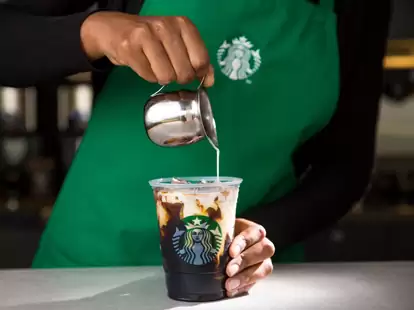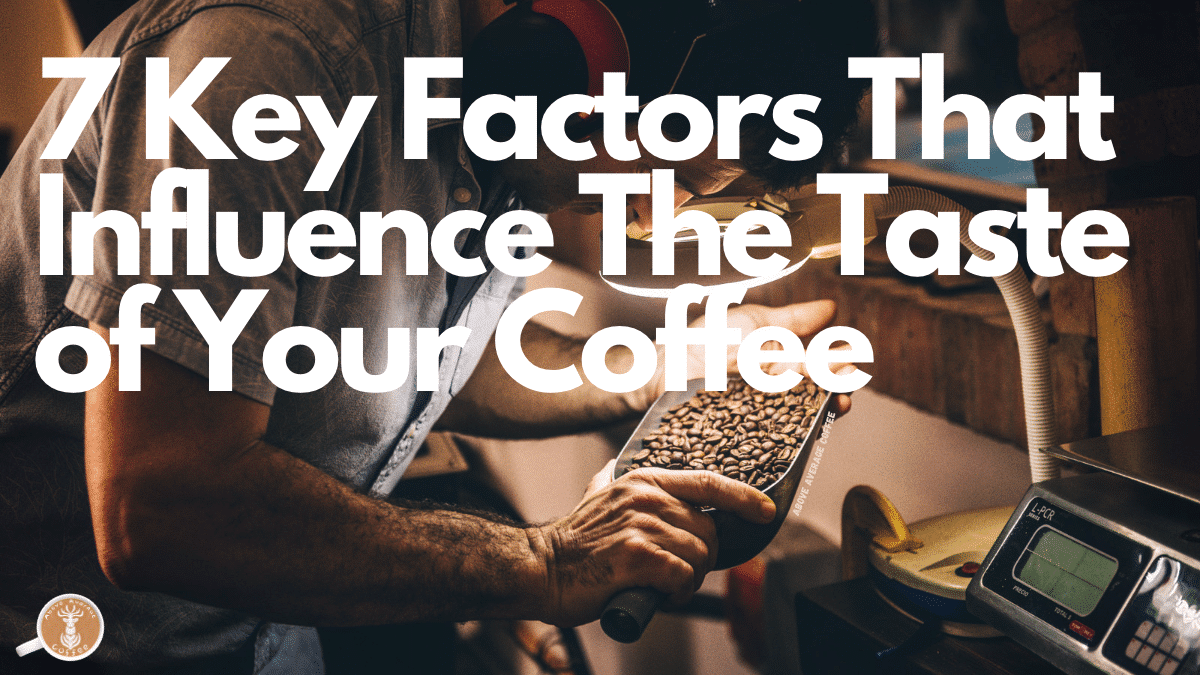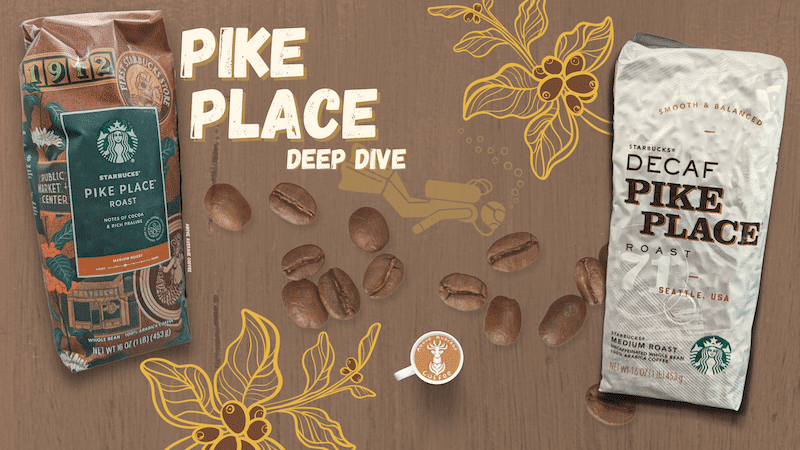If you’re one of those people who loves to sip on a coffee shop cup of joe, yet whenever you turn your hand to make it at home it just tastes bitter, then you’re not the only one. A bitter cup of coffee can ruin a perfectly good day. Luckily, there are a few key reasons why your coffee isn’t tasting smooth and sweet and once you know what they are, you can solve this issue pretty quickly.
The smoothest tasting coffee is made from high quality, arabica beans. A lighter roast avoids heavy and bitter oils and the brew method has to be spot on to get the best from your beans. Use only filtered water to ensure a fresh and smooth cup of java.
Our current top coffee pick is Lifeboosts Light Roast coffee which offers an organic coffee that has been hand picked with care, expertly roasted with precision, and gets delivered fresh to your door. Can’t ask for a smoother coffee.
What Causes Bitterness In Coffee?
The bitter notes found in coffee are actually one of the main taste elements that make up its full-bodied flavor. The roasting stage highly influences it and you can extract more or less of the bitterness by manipulating your brew method. If your coffee flavors are leaning too heavily on the bitter notes then there are a lot of ways to remedy this.
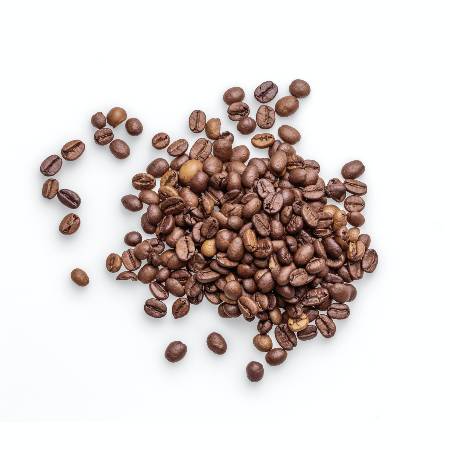
Coffee Beans
The type of coffee beans you choose is the first thing to consider when trying to find a smooth tasting coffee. Coffee beans typically fall into two categories, Arabica beans, and Robusta Beans.
Robusta Beans
Robusta beans are easier to grow and therefore tend to be cheaper to buy. These beans do contain more acids which break down to bitter-tasting compounds when the beans are roasted. They also contain less sugar so the bitter flavors are less balanced in your cup of joe.
Arabica Beans
Arabica beans grow better at high altitudes and need optimal climate conditions to ripen properly. They contain more sweet notes, especially if the beans have been selectively picked (only harvested when they are fully ripe) so balance out any bitter flavors easily.
If you’re looking for a silky-smooth tasting, bitter-free coffee then it’s Arabica beans that you need to be watching out for.
Roasting
The roasting process breaks down acids in the coffee and releases more oils which contribute to the bitter notes. The longer the beans are roasted or higher temperatures will cause a darker roast that can be more bitter to taste.
Darker roasts of coffee produce beans that are dark brown to black in color with a more oily appearance. Medium-Dark roasts are sometimes referred to as Vienna or Full City and moving up the darkness scale we have Italian roast (dark), French roast (very dark), all the way up to Volcano roast (extremely dark).
Medium to lighter roasts starts at City roast (medium), American roast (medium-light), and cinnamon (very light roast).
Brew Mistakes
Once you’ve chosen a bean and roast that suits your taste preferences the next thing to check is that you’re not making any of these common brew mistakes that could be adding more bitterness to your java.
Clean Equipment
Make sure the equipment you’re using is clean. Brewed coffee leaves an oily residue on equipment, especially in tricky to reach spots like mesh filters. This residue is bitter tasting and gets stale over time.
Clean your coffee brewer once a week using mild dish soap and a soft brush or sponge. You can also clean it by placing it on the top shelf of your dishwasher if the manufacturer states that this is safe to do so.
Don’t Overstew
There is an optimum brew time for every coffee brewing method. Overstewed coffee beans will cause over-extraction and leave you with a bitter-tasting cup of coffee. Make sure you check the optimum brewing time for the method you’re using and don’t let those coffee beans bathe for too long.
Water Temperature
If the water is too hot it will burn the coffee causing more bitter notes to be released. Water straight off the boil is too hot to pour over coffee straight away. The ideal water temperature for brewing hot coffee is 195-205F. If you don’t have a thermometer then boil the kettle and wait for 30 seconds to a minute before you pour.
Too Fine A Grind
The finer the grind of the coffee the more contact it has with the water. This is good for quick brewing methods like espresso but for slower brewing like a french press, this finer grind will leave to a bitter cup of coffee. Make sure you use a coarse grind setting or buy pre-ground coffee that’s suitable for the brew method you have chosen.
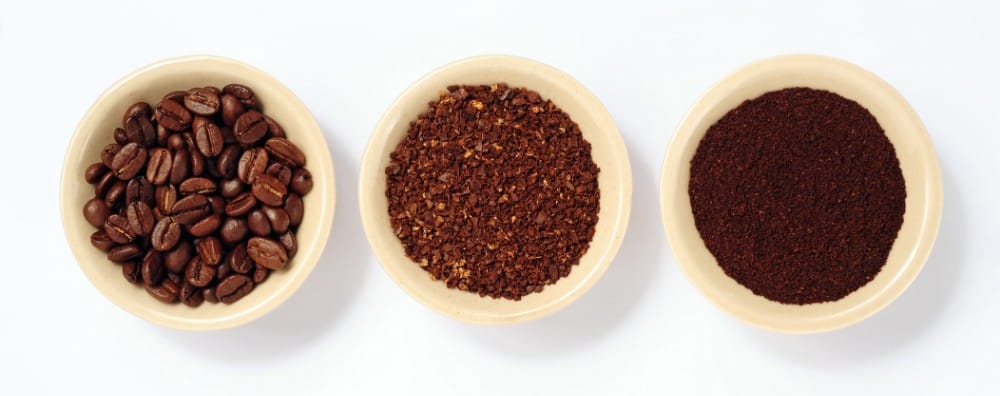
Water Quality
The quality of the water you use to make your coffee can have a large impact on the flavor. In short, poor quality water will give a bitter-tasting brew. If you’re using tap water to brew coffee and finding it tastes bitter then try filtering the water first and you’ll notice a huge difference.
Brew Methods That Are More Likely To Give A Bitter Brew
Some brew methods are predisposed to producing a bitter-tasting cup of joe, especially when you’re in-experienced at using them. If you’re keen to avoid all bitterness then be wary of these options.
Percolator
A percolator pot brews coffee by bringing it to a boil. The water is continuously cycled through the coffee grounds at this high temperature and the long brew time as well causes the resultant brew to tend towards bitterness. A skilled, well-practiced percolator user knows how to set it up and remove it from the heat at the correct point to avoid this issue.
Turkish Pot
The Turkish method of brewing coffee stews finely ground coffee in a thick, copper pot. The coffee is brought to a boil several times resulting in a very dark, rich brew. The finer grind and high water temperature of this brewing method can lead to a very bitter cup of coffee if you’re not well practiced in it.
Moka Pot
The Moka pot is a stovetop espresso maker that uses water pressure to force steam through finely-ground coffee. Again, this method requires that the water comes to a boil and the fine grind of the coffee can lead to a more bitter tasting cup. This method is one to avoid if you’re looking for a milder brew.
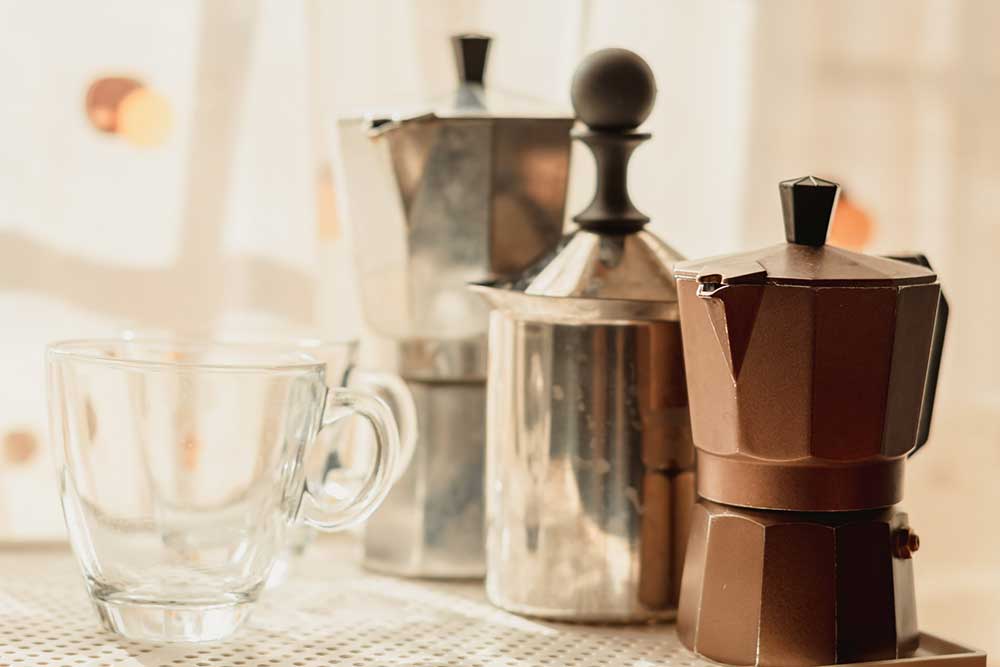
Espresso
A well-made espresso should not taste bitter but the nature of the brew makes it prone to end up this way. Making a well-balanced espresso takes skill and you need an expensive espresso machine that is capable of producing the high pressure required. If you’re new to coffee making then best leave this method to the barista.
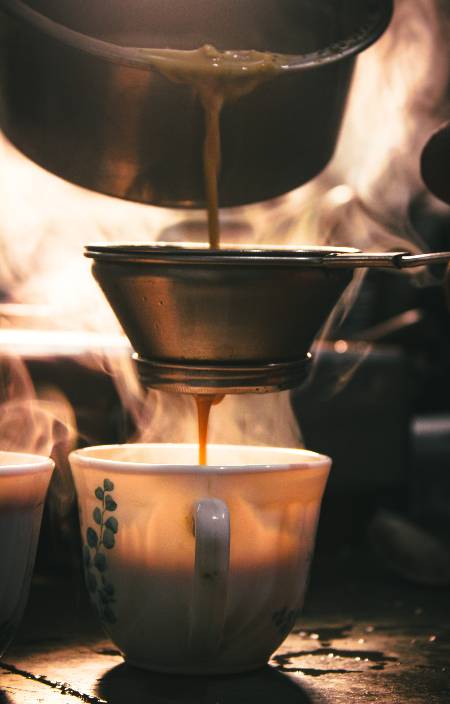
Good Brew Methods For Non-Bitter Coffee
Just as some brew methods can easily result in a bitter coffee, there are other brew methods that are much easier to get a smooth cup of joe, no matter what your coffee brewing experience. Here are a few that are well-known for avoiding bitterness.
Chemex
The Chemex is a pour-over set-up that’s designed to produce a deliciously smooth tasting brew. Ensure that you have a 1:15 coffee to water ratio, a medium-coarse grind, and water that’s around 195-205F.
The Chemex filter paper is made from a unique material that helps remove bitter notes making the resultant coffee even more sweet-tasting and satisfying. This brewing method is a top choice for smooth tasting coffee.
Cold Brew
Cold-brew coffee is a method where the coffee is left in cold water overnight to allow a slow, gentle infusion. The cold temperature reduces the bitterness leaving a lovely sweet brew the next day. You want to use a very coarse grind and a 1:7 coffee to water ratio. Most of the flavors will have infused by the 8-hour mark but cold brew can be left to stew for up to 24 hours. All you need to do then is strain away the coffee grounds and the cold brew is good to go. This strained coffee is called cold brew concentrate and can be used in food or drink recipes or topped up with water until it tastes just right for you.
This coffee will keep for 7 days in the fridge and can be enjoyed cold over ice or warmed up if you prefer.
The slow, cool extraction method of cold brew coffee vastly reduces the bitter and acidic notes so is a perfect choice for a smooth, sweet cup of java.
Nitro Cold Brew Coffee
Moving on from cold brew we have nitro cold brew coffee. This method takes your cold brew concentrate and infuses nitrogen into it to create a thick foamy coffee with a rich mouthfeel. It serves similar to stout beer (like Guinness) in a cascading type pour.
The microbubble effect created by the nitrogen gives the coffee a creamy quality that well and truly removes bitter notes without needing to add creamer.
Nitro brew is by far one of the least bitter ways to enjoy black coffee, the only downside being that you need a nitro brew kit or a coffee shop nearby that can brew using this method.
Filter Coffee
Similar to pour-over methods (like the Chemex) a filter coffee machine is a good way to avoid bitterness. A good quality filter machine (like the Breville Precision Brewer) heats the water to the perfect temperature and trickles it through the coffee to give optimum flavor. Filter papers help remove bitter oils giving you a lovely smooth cuppa without any hard work. These machines are perfect for the coffee newbie.
French Press
The humble french press is a brewing method that can go either way. If you follow these simple steps then you’re less likely to encounter a bitter cup of coffee.
You want to start with coarsely ground coffee (set your grinder to the coarsest setting).
The coffee to water ratio should be 1:12/1:13 (you can adjust this over time to suit your tastes once you get used to this brewing method. So for 30g of coffee, you’ll use 360g of water.
Add the coffee to the carafe.
Boil the kettle and let stand for 30 seconds to 1 minute or use water that’s between 195F-205F. Pour just enough water to cover the coffee and let it stand for 20 seconds to allow the coffee to “bloom”.
Pour the rest of the water over the coffee and set a timer for 4 minutes.
Once the timer goes off, give the coffee a stir and then press the plunger down slowly and using even pressure.
Making sure you follow these steps and using a clean, good quality french press will ensure you never suffer an overly bitter cup of coffee again.
What To Add To Coffee To Remove Bitterness
If you’ve tried everything and your coffee is still too bitter then adding some ingredients to it can help mellow this out.
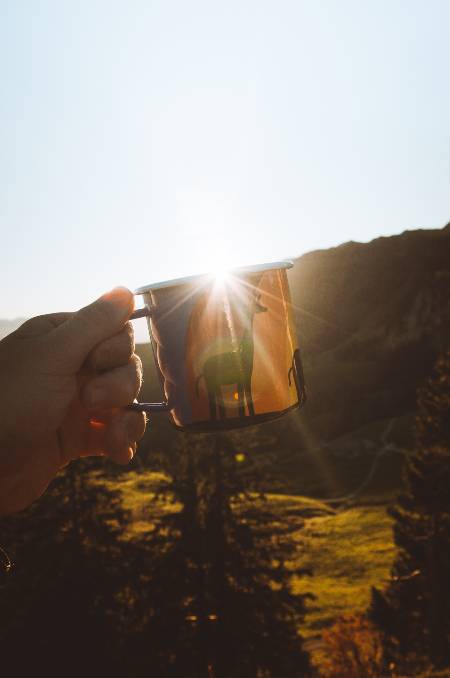
Milk
Dairy, soy, oat, almond, and the list goes on. Milk helps balance out the bitter notes of the coffee and gives it a thicker, creamier feel.
Cream
A step up from milk is cream or half and half. This gives your coffee that rich and sweet twist with a touch of decadence.
Creamer
Creamer is a flavor explosion that uses fats and sweeteners to boost your coffee. Although they’re not the healthiest option, they can be a nice treat once in a while, and there are many varied flavors out there to help customize your drink.
Sugar
The simple sweetness of sugar removes bitterness in an instant and this doesn’t just include the white granulated kind. The softness of caster sugar dissolves easily in coffee and the caramel notes of brown sugar can add more flavor. Other sugars like coconut sugar, muscovado sugar, cane sugar, etc allow you to get creative with this sweet addition.
Sugar-based syrups are very popular coffee additions and these come in a huge range of flavor options to suit any mood.
Sweeteners
Non-sugar sweeteners can be kinder to the waistline as well as reducing bitterness in coffee. Plant-based, zero-calorie options are one route you can go down.
Other natural sweeteners like maple syrup and honey are also worth considering.
Spices
Cinnamon is a top choice here to remove the edge from a bitter cup of coffee without adding anything unhealthy to the mix.
Salt
Sometimes a pinch of salt is all you need. Salt is supposed to help balance out the bitterness in coffee. I have found it makes the coffee taste too salty for my liking but if you love salted treats then press ahead and give it a go.
Final Thoughts
Bitter flavors are a natural occurrence in coffee but there are a lot of factors that can make them too prevalent. From the beans you choose right through to how you brew your java, any number of reasons could be causing a bitter brew. I hope this article has helped you troubleshoot any solvable issues and remember, if all else fails, just add a sprinkle of sugar!
Related Reading
Best Coffee Makers For Beginners
Technivorm Moccamaster Review (The Best Copper Coffee Machine)
How To Make Milk Foam in A French Press – Homemade Cappuccinos
The 3 Cheapest Ways To Make Good Coffee At Home
Instant Coffee vs Ground Coffee – The Differences Explained
Nitro Coffee vs Cold Brew (Comparing Chilly Concoctions)
Can You Froth Creamer?


